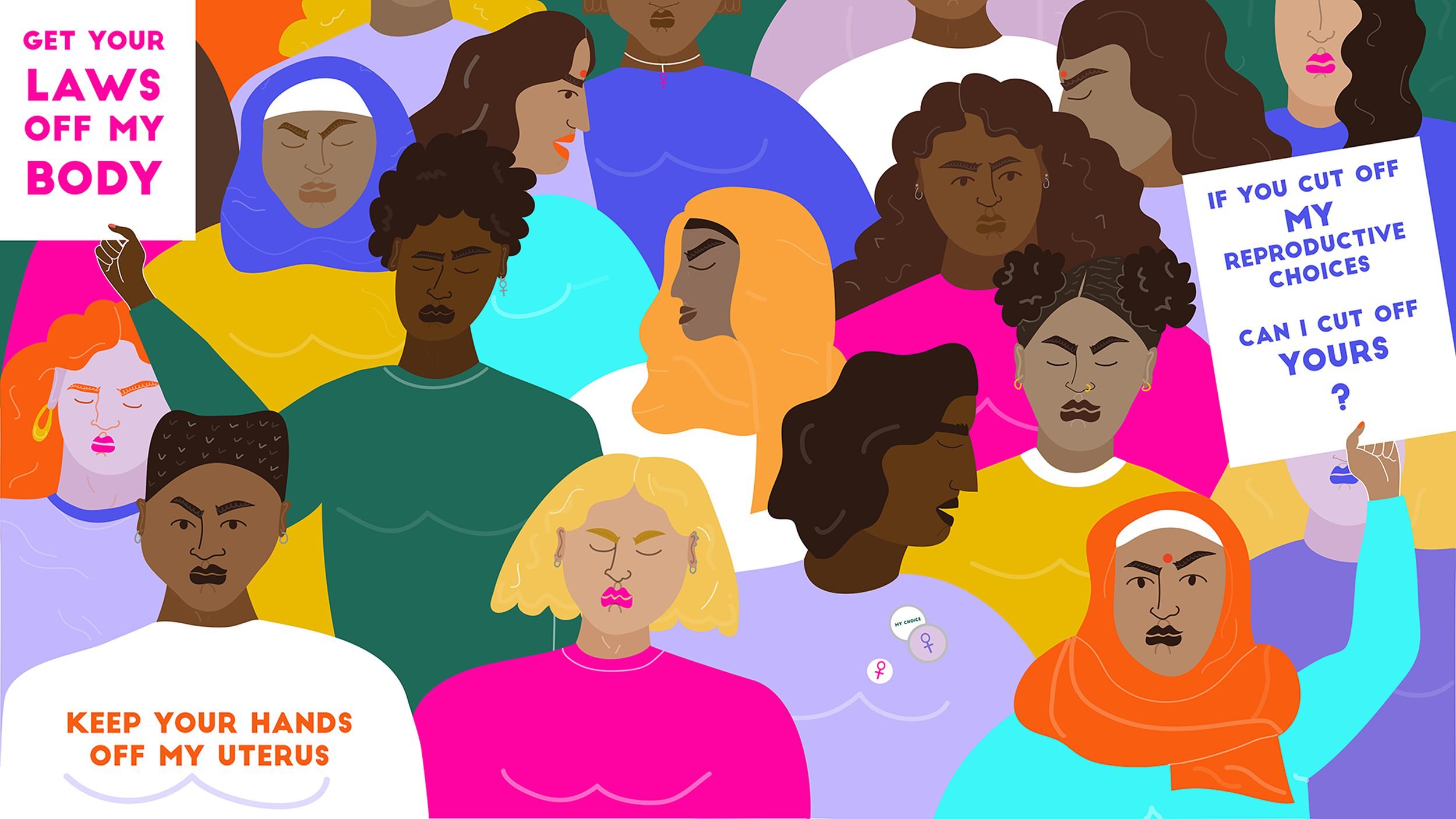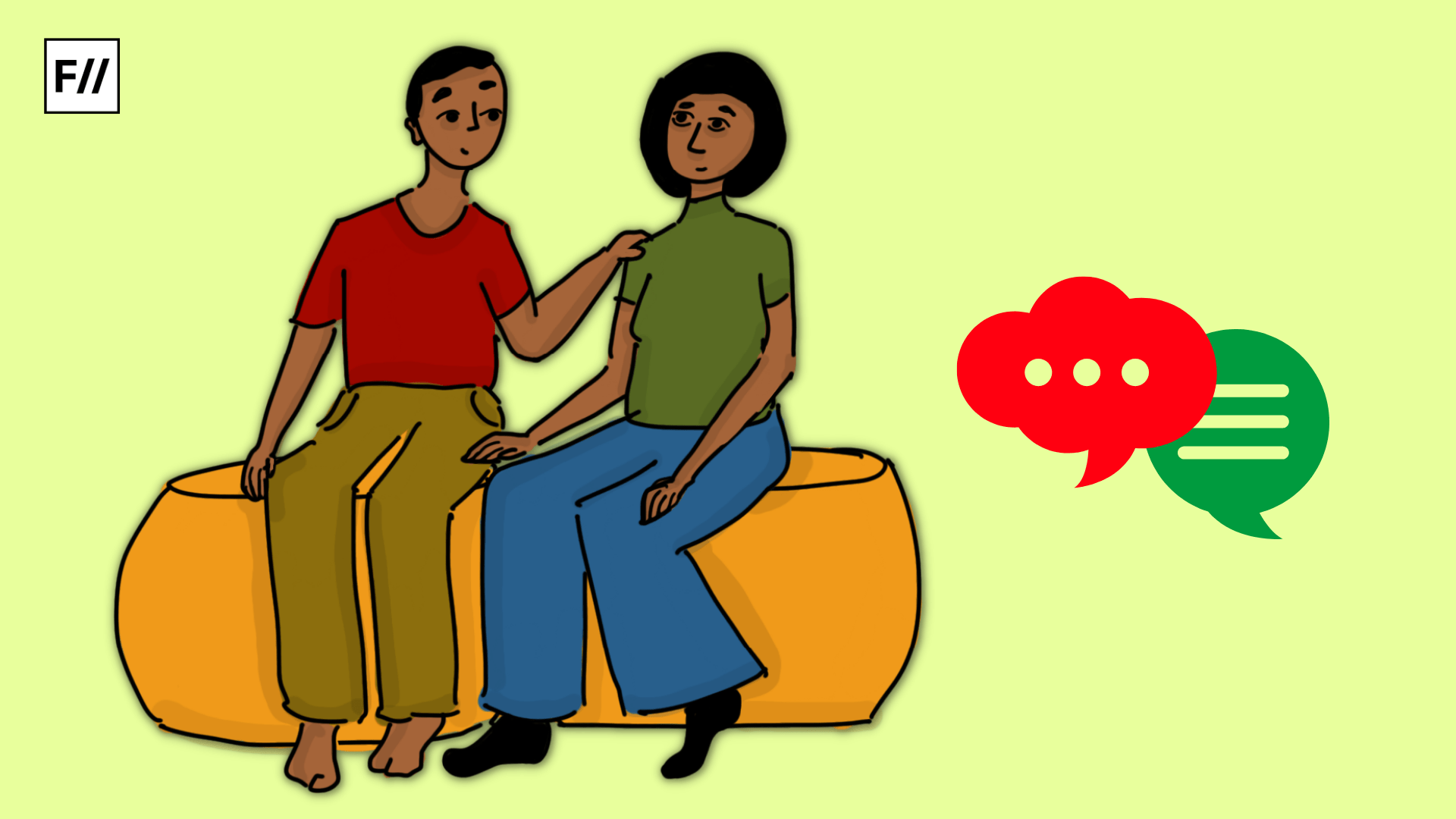Reproductive rights have been recognised as an inalienable aspect of human rights, wherein the two can no longer be viewed as mutually exclusive. It entails bodily autonomy, sexual health, access to maternal healthcare, freedom from sexual violence and torture, access to contraception and birth control, and access to safe and hygienic abortion services.
With such a broad gamut of rights subsumed under reproductive rights, the same are an integral part of any feminist practice which addresses the question of agency, choice, and freedom for women against oppressive, patriarchal structures which regulate women’s bodies. Reproductive rights are especially important in contexts, where highly restrictive social mores attach a morality constraint to women’s agency and prevent them from exercising their bodily autonomy. However, there have been relatively few efforts in India to address issues from the lens of reproductive rights as human rights.

India has had a chequered history with respect to securing reproductive rights for its women. In the recent past, efforts have been made to significantly reduce the maternal mortality rate, with schemes such as Janani Suraksha Yojana which monetarily incentivise institutional deliveries. There is also the issue of gender-biased sex selection which the state has taken seriously in the past, and is a positive step towards eliminating societal pressures on expectant mothers. The steps taken towards the same are, however, flawed and require re-evaluation.
REPRODUCTIVE RIGHTS ARE A RECOGNITION OF THE FACT THAT REGULATION AND CONTROL OVER WOMEN’S SEXUALITY AND REPRODUCTIVE CAPABILITIES IS THE VERY BASIS OF PATRIARCHY AS AN IDEOLOGY.
The Medical Termination of Pregnancy Act of 1971, which made abortions legal in India, stipulates a 20 week time period within which abortions are allowed. This is to prevent gender-biased sex selection, but presents a whole host of issues which are detrimental to the reproductive autonomy of women in India.

One of them is the insufficient time frame within which abortions must take place. The other is insufficient dissemination of information, wherein a common misconception that goes unchecked—parental or spousal permission is required to abort a foetus. Another is the power that the law gives to medical practitioners licensed to perform abortions, who are empowered to make decisions about the termination of the foetus, and who may deny the service based on their medical opinion.
Access to contraception is another key issue that remains problematic in India. While government schemes promote the use of contraception in rural areas, they do so under the rubric of family planning schemes which can be availed by married couples. For adult, unmarried women to access birth control, there are several institutional and societal barriers which prevent them access, based on morality concerns. In Tamil Nadu, for example, there still exists a ban on the sale of emergency contraceptive pills over the counter, due to anxieties around women freely expressing their sexuality.
Safety from sexual violence is another sphere of reproductive rights which is often treated as a separate issue. Marital rape, for example, must be viewed through the lens of reproductive rights as human rights; doing so would recognise the fact that the phenomenon occurs as a form of control over women’s bodies through violence. This violence is overlooked due to its occurrence within the marital context, in which procreation is viewed as a natural goal.
Reproductive rights are a recognition of the fact that regulation and control over women’s sexuality and reproductive capabilities is the very basis of patriarchy as an ideology.
There may therefore be countless children born out of such violence, owing to the naturalisation of the narrative of sexual ownership and control over women within a marriage. Sexual violence outside the marital context must also be viewed for its underlying connotations of femicide; that it aligns with the notion that women with reproductive capacities must be controlled by having their sexual agency taken away from them.
Also read: iPill, uPill, We Would All Kill For An iPill In Chennai
When all of these issues are treated as separate from each other, and not under the ambit of reproductive rights as a spectrum, what goes unchallenged is the origin of all of these issues from a singular source—the reproductive system of women as a site of patriarchal structuring of gender roles and power relations. What all of them have in common is historical roots in paternal anxiety, wherein women’s sexuality was viewed as dangerous on account of the threat it posed towards determining paternity and therefore, lineage and ancestry.

Reproductive rights are a recognition of the fact that regulation and control over women’s sexuality and reproductive capabilities is the very basis of patriarchy as an ideology. By acknowledging it as a human rights issue, this subordination is directly challenged at the ground level, wherein women are treated as individuals who are oppressed as a collective, based on biological characteristics.
There exists a tendency to club these issues together as ‘women’s issues’ instead, which makes them secondary to other concerns. The lack of progress is reflective of the fact that there is inadequate attention paid to the root causes that lead to them, in the first place. Courts in India have cited international law such as articles from the Convention on the Elimination of Discrimination Against Women (CEDAW) and the International Covenant on Economic Social and Cultural Rights (ICESCR), and articles 14 and 15 of the Constitution in order to emphasise the import of reproductive rights as essential to the fundamental right to dignity and liberty regardless of any other factors.
Also read: Rohtak Rape Brings Into Focus India’s Troubled Relationship With Reproductive Rights
A more robust incorporation of the reproductive rights framework is, however, required if future policies and judgements are to have a nuanced understanding of the qualitative nature of problems pertaining to women and gender.
Featured Image Source: Vice
About the author(s)
Rohitha Naraharisetty is a student of Development Studies at IIT Madras. She is interested in gender studies, aspires to smash the patriarchy, and is terrible at writing clever bios.




